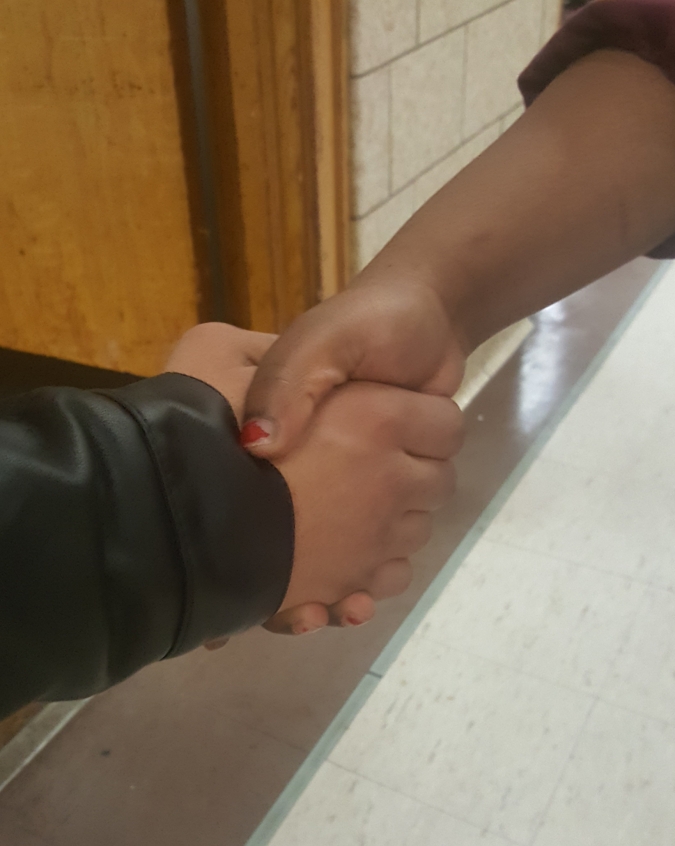
I used to tell students, “Don’t plan on summer school.” I didn’t want kids to feel complacent during the year and figure, “Oh, well, I’ll just go to summer school if I don’t pass.” To create a sense of urgency, and scarcity, I’d say things like, “We might not be able to give you this class in summer school so you’d better pass now.”
Yet now, I’m reminded again of why summer school is special. For kids, they’re with their friends instead of being bored at home. Each classroom, blessedly, has a cold, blasting air conditioner.
For staff, summer school is a unique time with a small group of students.


 I live in the Bronx only a 15 minute walk from my school. One advantage of living close to school is that I have a beautiful, easy commute, and another advantage is that I sometimes see my students outside of school.
I live in the Bronx only a 15 minute walk from my school. One advantage of living close to school is that I have a beautiful, easy commute, and another advantage is that I sometimes see my students outside of school.
 As a teacher, I used to look forward to summer vacation. As a principal, summer is precious work time. While I have a few weeks of vacation that I take here and there, I work for most of the summer. There’s a lot to do: supervising summer school, planning for the following year, hiring teachers.
As a teacher, I used to look forward to summer vacation. As a principal, summer is precious work time. While I have a few weeks of vacation that I take here and there, I work for most of the summer. There’s a lot to do: supervising summer school, planning for the following year, hiring teachers. A friend was recently telling me about his experience when he was a child in the 5th grade. “I used to get in trouble before the 5th grade. But my 5th grade teacher, she liked me. It was like, she never expected me to do anything bad. So I didn’t.”
A friend was recently telling me about his experience when he was a child in the 5th grade. “I used to get in trouble before the 5th grade. But my 5th grade teacher, she liked me. It was like, she never expected me to do anything bad. So I didn’t.” I once visited a principal who greeted his students as they walked in the front door of his school. He told me, “I solve 90% of my school’s discipline problems by standing here, greeting each student. I notice who’s smiling and who seems to be upset, and I stop them, talk to them, see if I can intervene and catch the problem before they walk into their classes.”
I once visited a principal who greeted his students as they walked in the front door of his school. He told me, “I solve 90% of my school’s discipline problems by standing here, greeting each student. I notice who’s smiling and who seems to be upset, and I stop them, talk to them, see if I can intervene and catch the problem before they walk into their classes.” “That’s my butterfly!”
“That’s my butterfly!” 
